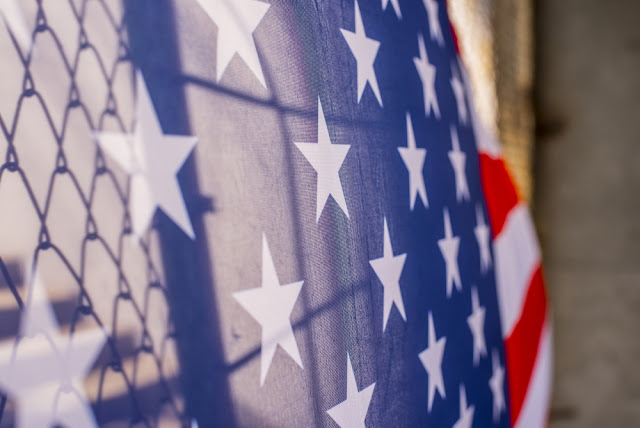 On May 9, 2016, the United States Citizenship and Immigration Services (USCIS) announced the implementation of the Filipino World War II Veterans Parole Program (FWVP) policy effective June 8, 2016. The FWVP will allow the beneficiaries of approved family-based immigrant visa petitions filed by a qualified Filipino WWII veteran (or surviving spouse) to apply for parole while they wait for an immigrant visa number to become available. To learn the background and details of the program, please see our full article [see article]. In this post, I will explain the reasons why USCIS implemented the program and why I think it is an appropriate exercise of the Attorney General's statutory parole authority.
On May 9, 2016, the United States Citizenship and Immigration Services (USCIS) announced the implementation of the Filipino World War II Veterans Parole Program (FWVP) policy effective June 8, 2016. The FWVP will allow the beneficiaries of approved family-based immigrant visa petitions filed by a qualified Filipino WWII veteran (or surviving spouse) to apply for parole while they wait for an immigrant visa number to become available. To learn the background and details of the program, please see our full article [see article]. In this post, I will explain the reasons why USCIS implemented the program and why I think it is an appropriate exercise of the Attorney General's statutory parole authority.WHY USCIS CREATED THE FWVP
USCIS laid out its reasoning for creating the FWVP policy in a Federal Register notice announcing the program [see 81 FR 28097].
Firstly, the Federal Register notice observed that “more than 260,000 Filipino soldiers enlisted to fight for the United States during World War II.”[1] The notice noted that “[e]stimates indicate that as many as 26,000 of these brave individuals became U.S. citizens.” It estimated that approximately 2,000-6,000 Filipino WWII veterans are alive in the United States today.
Secondly, USCIS recognized that the beneficiaries of approved family-based immigrant visa petitions from the Philippines often face extremely long wait-times before an immigrant visa number becomes available. For example, the chart [see here] shows the Application Final Action Dates for family-sponsored preference cases for Filipino applicants from the June 2016 Visa Bulletin [see Bulletin].
FAMILY-SPONSORED - PHILIPPINES
- F1 — December 22, 2004
- F2A — November 8, 2014
- F2B — June 1, 2005
- F3 — February 1, 1994
- F4 — December 1, 1992
With the exception of the F2A category, the wait times for immigrant visa numbers for Filipinos with approved family-based petitions are extensive.
Accordingly, we can see why USCIS decided to implement the FWVP:
- In recognition of the brave service rendered to the United States by Filipino WWII veterans.
- In recognition of the fact that the few surviving Filipino WWII veterans in the United States are now elderly and may wish to have their family by their side in the United States in their old age.
- In recognition of the scarcity of immigrant visa numbers for family-based applicants from the Philippines.
MY THOUGHTS ON THE FWVP
It has been well-documented on this blog that I have often disagreed with some of the immigration initiatives forwarded by the current administration over the past couple of years [see my blog on the DAPA litigation]. However, I think the FWVP is an example of a well-reasoned and lawful immigration policy.
The FWVP policy is a fair exercise of the Attorney General's discretionary parole authority under section 212(d)(5)(A) of the Immigration and Nationality Act (INA), which provides for the discretionary grant of parole, on a case-by-case basis, where the Attorney General finds either that there are urgent humanitarian concerns or that the grant of parole would serve a significant public benefit. To be sure, it would be hard to argue against USCIS's contention that allowing for parole to be considered on a case-by-case basis for family members of elderly WWII veterans who fought bravely for this country does not serve a significant public benefit. Furthermore, in cases where the veteran is infirmed or lacking other family in the United States, USCIS plausibly argues that parole may also satisfy an urgent humanitarian concern.
The FWVP policy is a welcome initiative for a small number of elderly Filipino WWII veterans still alive in the United States and their family members who may be eligible to benefit. At the Law Offices of Grinberg & Segal, PLLC, we stand ready to assist those who may stand to benefit from the program.
Please visit the nyc immigration lawyers website for further information. The Law Offices of Grinberg & Segal, PLLC focuses vast segment of its practice on immigration law. This steadfast dedication has resulted in thousands of immigrants throughout the United States.
- From 1934-1946, the Philippines was a U.S. commonwealth that was transitioning to full independence (including the period from 1942-1945 when the Philippines was under Japanese occupation).
Lawyer website: http://myattorneyusa.com
